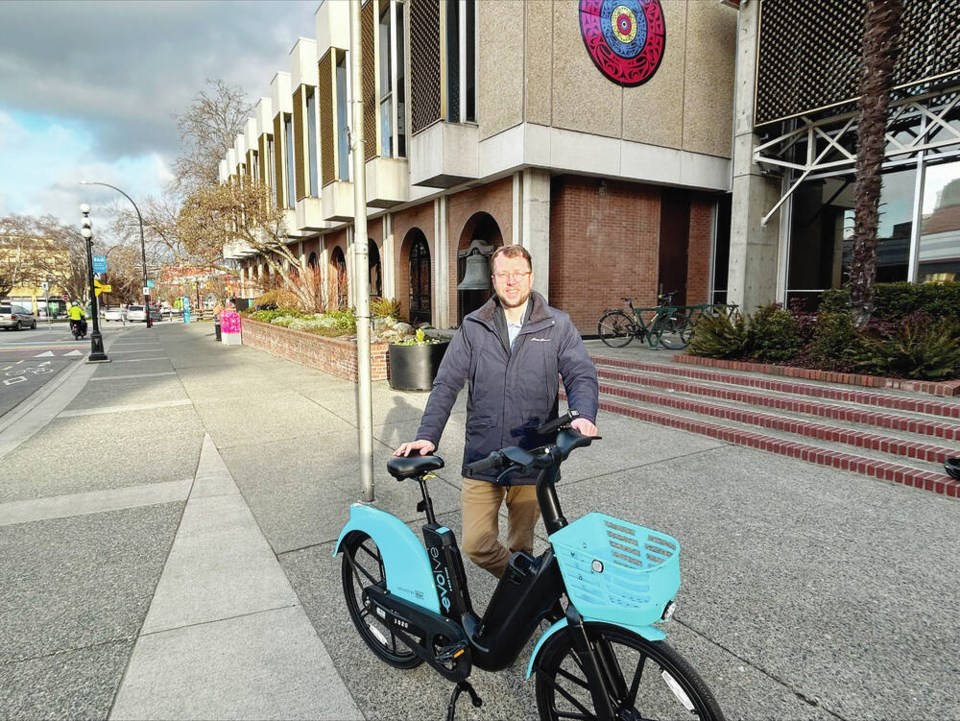A Victoria city councillor is pushing for a new bike-sharing program in the city.
Coun. Matt Dell said the technology used by bike-share companies has advanced in the years since the previous bike-share program in Victoria failed.
“If we get it right, it would be hugely popular,” Dell said.
City staff are looking into the idea of a bike-share program, said Dell, who would like to see a pilot program set up this summer.
He’ll consider bringing forward a motion at council to speed the work up if needed, he said.
“This is the future. There’s no doubt about it. We’re just behind here, but it’s coming,” Dell said.
Corey Burger, policy and infrastructure chair of Capital Bike, a cycling advocacy group, said a bike-share program would ideally be planned and operated alongside the transit system.
“It really is a transit solution,” Burger said.
“It facilitates those first-mile and last-mile connections, so you get off the bus, you hop on a bike share, you ride the last little bit to your destination.”
Burger said docked bike-share programs have shown better longevity in other places and provide certainty to users, who know exactly where they can find a bike.
While the program can be used by tourists, Burger said bike shares are primarily used by locals, including people who own their own bikes.
“Maybe you’re going to ride somewhere, you’re going to do a big shopping trip and then maybe you’re in a taxi home with that big shopping trip,” he said. In 2017, U-Bicycle, a bike-sharing company based in China, rolled out 160 green bikes equipped with GPS and self-locking technology in Victoria, later expanding to 900 bikes around Saanich, Oak Bay, Esquimalt and Cowichan Bay. The company also operated on the mainland.
Initially, the bikes could be parked in any public areas wherever it’s legal to do so and without impeding vehicle or pedestrian traffic.
The company later expanded sites where bikes could be parked. They were located, unlocked and paid for with a mobile app.
The bikes proved vulnerable to vandalism.
Photos captured the green bikes on top of buildings and thrown into the ocean in the Inner Harbour. The lock mechanism, which enabled GPS, was sometimes broken off, which destroyed the GPS capability. Handlebars were bent, helmets went missing, and seats were stolen.
By February 2019, only 110 of the 200 bikes placed in downtown Victoria remained.
U-Bicycle no longer appears to have a functioning website and its social media pages have been inactive since early 2020.
Despite U-Bicycle’s failure, there are successful bike-sharing programs in cities across Canada.
Vancouver launched its own bike-share program, Mobi, in 2016, with bikes located in docking stations scattered throughout the city.
Last year, Mobi expanded with 50 new stations and 500 e-bikes added to the fleet.
Evo, operated by BCAA, ran a bike-sharing pilot project in Whistler last summer and is working on a long-term program there, as well as other municipalities.
The bikes include GPS trackers and are completely controlled through the app, said Kyla Way, senior manager of marketing and strategic ventures for BCAA.
>>> To comment on this article, write a letter to the editor: [email protected]



